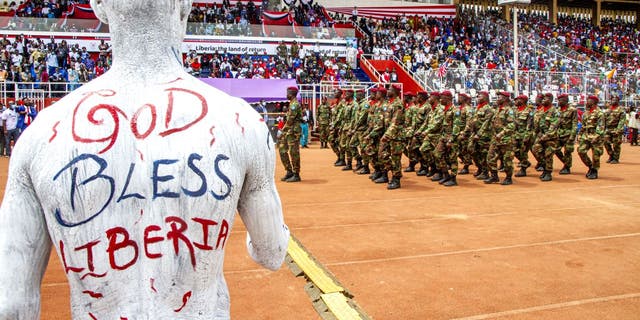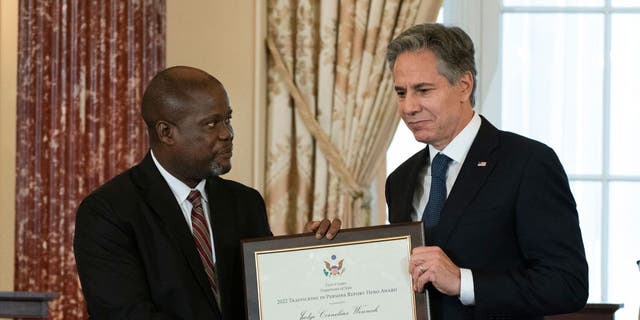Liberia celebrates founding, independence amid struggles with poverty and corruption
The African nation of Liberia is celebrating the anniversaries of its founding 200 years ago and its declared independence from the United States 25 years later as much of the population continues to struggle with extreme poverty.
Amid the festivities for Independence Day on Tuesday, many Liberians say the West African country’s promise is unfulfilled and too many of its people still live in poverty.
“Liberia has gone backward 50 or more years,” says Richard Cooper, a 67-year-old farmer in Louisiana township, outside the capital, Monrovia.
“We have had government after government, people coming into and going out of power, doing their own things without consulting or satisfying the masses,” he told The Associated Press on a dusty road in front of his two-roomed home.
AFRICA: THE NEW GROUND ZERO FOR JIHADI TERROR GROUPS, EXPERTS SAY
Nearly 20 years after the country’s back-to-back civil wars killed an estimated 250,000 people between 1989 and 2003, Liberia’s children still yearn for an opportunity to go to school, he said.
Information Minister Lederhood Rennie, however, said that major celebrations for these anniversaries are necessary to build national pride and honor the work of many to establish the nation.
“This country has a rich history… Liberia stood as the pedestal for Black independence south of the Sahara… other nations of Black people were looking up to Liberia as a glowing nation on the continent of Africa,” Rennie told AP as he oversaw preparations in the national stadium for the independence celebrations.
2 CONGO MEN PLEAD GUILTY TO ILLEGALLY SHIPPING IVORY, RHINO HORNS, AND PANGOLIN SCALES
The United States has had a lasting influence on the West African country. Liberia’s flag, constitution, form of government and many laws are modeled on those of the U.S. The capital is named in honor of America’s fifth president, James Monroe, who was in power when the freed slaves were repatriated.

The ex-slaves established an oppressive regime that ruled the indigenous population with an iron fist from the time of their arrival until 1980, when indigenous soldiers led a military coup against President William Tolbert. Tolbert — whose family migrated from South Carolina in the 1870s — was gruesomely murdered by the rebelling soldiers.
ETHIOPIA FORMS BODY TO NEGOTIATE WITH TIGRAY REBELS AMID DEADLY CIVIL WAR
The prolonged trauma of the civil wars followed and then the rule of Nobel Prize-winning President Ellen Johnson Sirleaf.
A persistent problem has been corruption, which may be largely responsible for the underdevelopment and poor economic growth of an otherwise resourceful country of less than 6 million people.
U.S. Ambassador Michael A. McCarthy was blunt in a speech earlier this year.

“We would not be good stewards of U.S. taxpayers’ money, nor would we be good partners to Liberia, if we sat quietly and said nothing as misgovernance and corruption continued with impunity,” he said.
The World Food Program, a branch of the United Nations, estimated in 2018 that 64% of Liberians live below the poverty line and 1.3 million people in that segment are living in extreme poverty.
The Associated Press contributed to this report.
Read the full article Here


